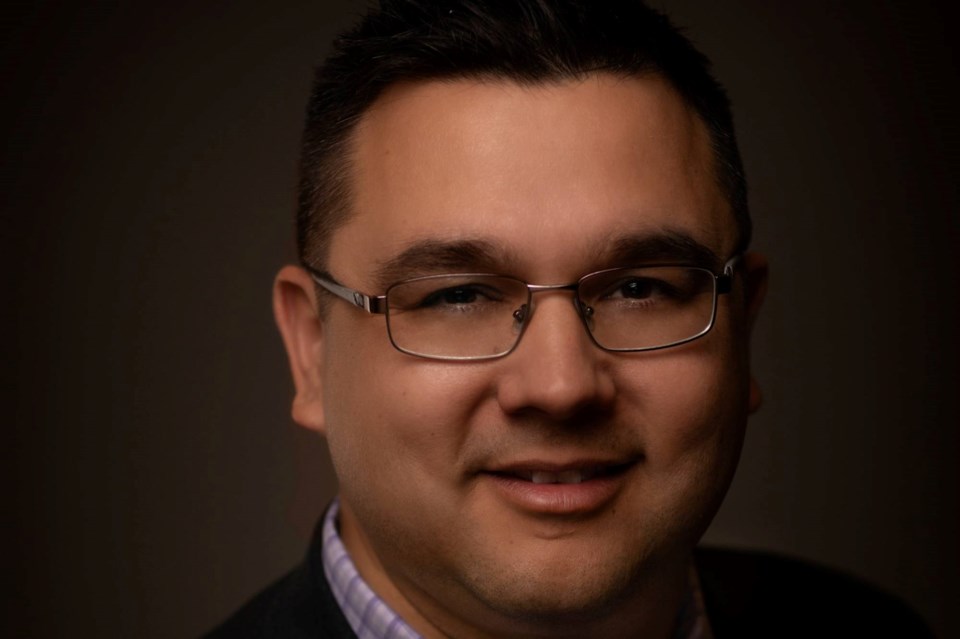When asked, “What are your earliest memories of being around or involved with business?” Kevin Eshkawkogan was quick to credit his family’s entrepreneurial spirit.
He fondly recalled early memories of his grandmother and family slinging Indian tacos and selling birchbark crafts and listening to stories of his family traversing the Great Lakes region in both Canada and the U.S. as a harvesters in the fruit and timber industries.
“They wanted to provide for themselves, to create something for themselves and take care of themselves and their family,” said Eshkawkogan, the Manitoulin Island-based president and CEO of Indigenous Tourism Ontario.
From a young age, Eshkawkogan used his keen observational powers to learn from others and the environment around him. One of his philosophies is to “go to school on others,” a term simply meaning to learn from other people.
At the young age of 13, Eshkawkogan secured his first job at a grocery store in Chapleau. He described his first boss, Roger Perreault, as a very successful businessperson who was old school, who was firm, but always fair. Eshkawkogan quietly studied the shop owner’s day-to-day routine in carrying out duties.
“I watch how other groups and other people became successful in the business world,” said Eshkawkogan. “It’s that philosophy of learning from others; it’s been with me from a young age and it’s still there today.”
As an adolescent attending high school in Chapleau, Eshkawkogan credits his accounting teacher, Mr. Maclean, for nurturing his talent for numbers. As a young adult, Eshkawkogan continued his educational journey, attending various postsecondary institutions such as Lakehead University in Thunder Bay, Canadore College in North Bay, and York University in Toronto, studying business, accounting and political science.
When Eshkawkogan returned to Manitoulin Island to work at Waubetek Business Development Corporation as an intern, he didn’t intend on sticking around for long, but once he started, he felt compelled to stay.
“The work was so rewarding, to help people start their own businesses. I thought, this is amazing; we’re helping people create opportunities for themselves and for others.”
Drawing on his own life experience of being forced to move away from his home in M’Chigeeng First Nation at an early age so his family could find year-round work opportunities elsewhere, Eshkawkogan came to the realization that First Nation entrepreneurship can help stem the outmigration of people from their communities.
Returning home to Manitoulin almost 20 years ago, Eshkawkogan is happy he chose to stay to help bring entrepreneurship opportunities to his fellow First Nation people and communities locally, and now provincially.
Through his efforts and a driving belief that entrepreneurship and economic development are vital tools to help First Nations to break the dependency trap that’s been systematically forced upon them through colonization, Eshkawkogan has been involved with helping bring major development projects from revenue-generating wind turbines in M’Chigeeng First Nation to the Manitoulin Hotel and Conference Centre in Little Current.
Now, in heading up Indigenous Tourism Ontario, one of the many organizations he helped create over his career, Eshkawkogan sees the population boom amongst Indigenous people as an opportunity to address the many labour shortages across the country. Through his involvement and experience in more than 50 different corporations over the years, he views Indigenous people as leading experts in the tourism industry.
“We’re the original hosts of these lands so there’s nobody better than us to be in the tourism industry,” said Eshkawkogan.
When it comes to wealth generation amongst First Nation communities and business owners, Eshkawkogan believes that boils down to ownership of land, which doesn’t align with First Nation’s core values. Nonetheless, Eshkawkogan knows that First Nation communities and people need access to land to generate wealth in today’s marketplace. Moreover, he wants to see First Nations expand their rights beyond the imposed boundaries of the reserve lands dictated by the Indian Act.
“If you’re status Indian, under the current terms of the Indian Act, you lose benefits because of where you live. This is an antiquated and systemically racist policy,” said Eshkawkogan. “As much as I love being close to the family, the grassroots, and an office in Aundeck Omni Kaning, I shouldn’t have to. When I need to be in the epicentre of where business happens, I should be able to work there and not get penalized because I’m First Nation.”
According to Eshkawkogan, the new normal will be Indigenous communities and entrepreneurs being equity owners and partners in major economic development projects. Plus, he sees Indigenous people and businesses continuing to evolve as collaborators who bring together different types of people from different nationalities to work towards prosperity for all stakeholders and partners at the table.
When speaking about the future of Indigenous people and their role in the marketplace, Eshkawkogan said First Nation people work from a place of communal good, which creates conflict with some capitalism philosophies. Capitalism places a disproportional amount of value on individual effort while concentrating wealth in the hands of a few, while First Nation’s definition of wealth is based in communal connections, sharing and giving.
As more First Nation individuals become active market participants, combining their own values while adapting to the current market structures, Eshkawkogan envisions social enterprise as the leading force in driving change in how future markets function with First Nation communities and entrepreneurs.
“The region that can figure out how to work alongside First Nations in a truly mutually beneficial manner will find themselves in the most prosperous region in the world," he said. "Financially, socially, culturally, and whatever other metric we want to measure.”
This is one in a series of articles profiling recognized leaders from Indigenous communities across Northern Ontario, who stand out for the contributions they’re making on local, regional, and international levels.




